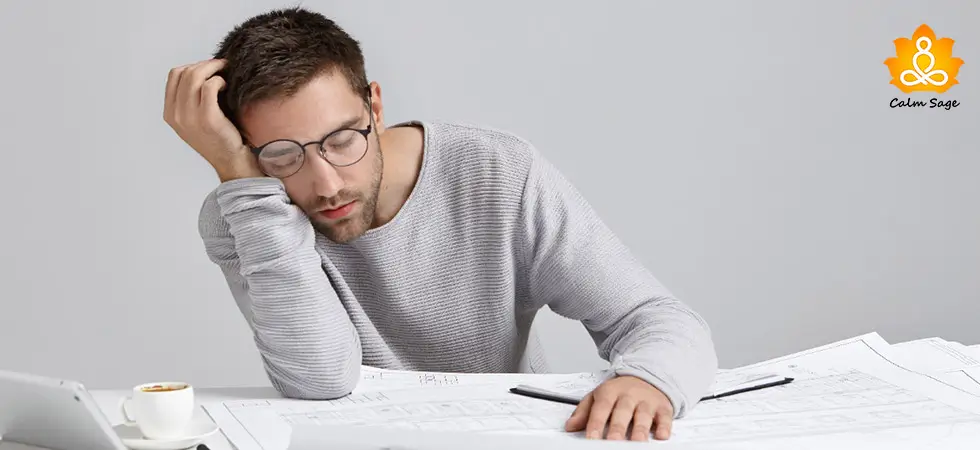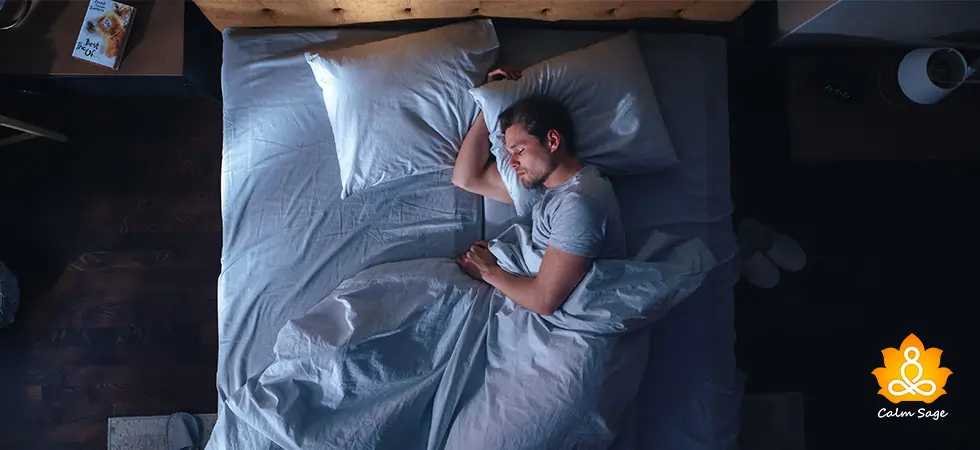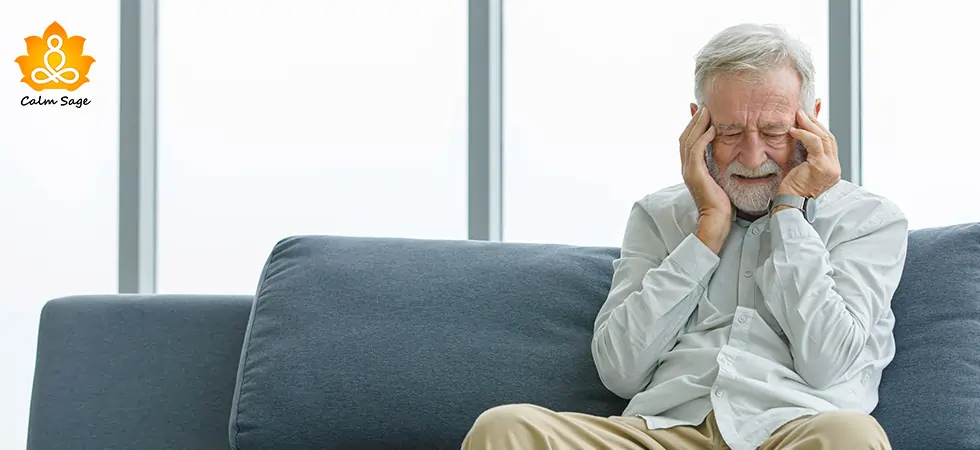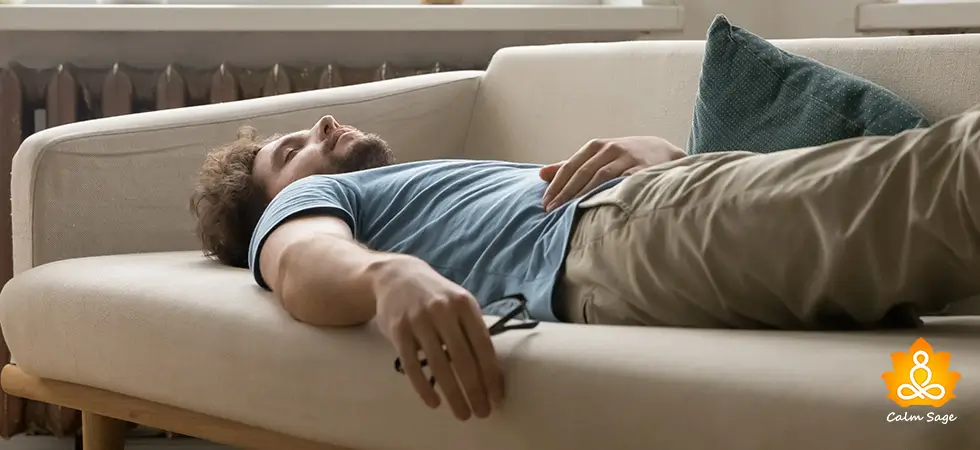Microsleep: Causes, Impact, And Ways to Prevent Sleep Micro-Lapses

Have you ever found yourself zoning out in the middle of a conversation, only to snap back awake with a jolt and no memory of the missed moments? Or maybe you’ve jolted yourself awake while driving on a monotonous freeway?
It has happened to me much more than I care to admit, especially in the morning and middle of dinner. When I have a long day, this is regular, and it takes place anywhere. This occurrence of sleep episodes is called microsleep. It is a more common phenomenon than you think and has serious consequences.
However, the microsleep episodes are brief periods of unconsciousness that last a second to a few minutes. This is why it is often mistaken for daytime drowsiness and overlooked. But if you have been experiencing these episodes for more than you can remember, take care of them.
Unlike a quick daydream, microsleep completely shuts down your brain and disconnects you from your surroundings, leaving you vulnerable to accidents and harm.
What is Microsleep?
Your brain is a vigilant guard, protecting you from drowsiness. When well-rested, your guard – aka your brain – is alert and focused. However, sleep deprivation weakens your brain and its ability to stay focused. As fatigue builds, your brain turns to power naps or micro-naps, resulting in microsleep episodes.
These brief, seemingly harmless, conscious lapses can occur without warning, making them dangerous.
What Does it Look Like?
The telltale signs of microsleep can be subtle. Here are some signs of microsleep you need to watch out for:
- Your head involuntarily jerks forward as your body briefly succumbs to sleep
- Your eyelids become limp and heavy as you struggle to stay awake
- You suddenly jerk or flinch as your body momentarily loses consciousness
- Your eyes appear glazed over, and you seem unresponsive for a while
- You have gaps in your memory, unable to recall what happened during a microsleep episode
What Causes Microsleep?
Anyone can experience microsleep, but certain factors can increase the risk of this sleep lapses, such as;
- Sleep deprivation
- Shift working hours
- Monotonous activities include driving long distances, working long hours on repetitive tasks, etc.
- Boredom
- Medications
The primary cause behind microsleep is sleep deprivation. When your brain is chronically tired and sleep-deprived, it can resort to these brief involuntary shutdowns to maintain some level of functioning. Moreover, underlying sleep disorders like sleep apnea can exacerbate the issue by further disrupting sleep quality.
If you’re taking certain medications or are prescribed some to treat medical conditions, then those can also affect alertness.
Chronic stress can also trigger episodes of microsleep. Stress can lead your nervous system to go on alert, making it harder for you to shut down your brain for the rest it needs. Your circadian rhythm can worsen with the consistent release of cortisol, the stress hormone.
The Impact of Microsleep
Microsleep can have a significant impact on various aspects of your life. These brief involuntary sleep lapses can be a major risk factor for accidents, especially while driving. Even a few seconds of unconsciousness can be catastrophic behind the wheel. Microsleep can also affect your work performance. When these brief sleep lapses occur, you can lose productivity, make errors in judgment, and find it hard to focus on work-related tasks.
Chronic fatigue and sleep deprivation can eventually contribute to various health issues, such as high blood pressure, heart disease, and even diabetes. Microsleep can also impact cognitive functions such as memory, focus, and reaction time, impacting one’s ability to function effectively.
How to Prevent Microsleep Episodes?
The solution to preventing microsleep is to prioritize good and healthy sleep habits. Here’s what you can do to treat microsleep episodes;
1. Prioritize Sleep
Try to aim for 7–9 hours of quality sleep each night. Establish a consistent bedtime routine and schedule to follow and stick to, even on weekends.
2. Take Naps, Strategically
Take short power naps (20–30 minutes) to help combat the drowsiness you feel and prevent microsleep episodes, especially during long work shifts and hours.
3. Manage Stress
Chronic stress can disrupt sleep and cause you to feel constantly on alert—even while resting. To avoid getting sleep-deprived, practice relaxation techniques like meditation or deep breathing to improve your sleep quality and reduce stress.
Read More – Tapping For Anxiety And Stress
4. Create a Healthy Sleep Environment
Ensure that your bedroom is sleep-conducive. Your sleeping place should be dark, quiet, and cool – ideal for good quality sleep. You can make it more sleep-friendly by investing in a good mattress, comfortable sheets, or weighted blankets.
5. Limit Caffeine Consumption
Try to avoid caffeine and alcohol close to your bedtime, as they can interfere with sleep. If you are a caffeine drinker or need some stimulants, then avoid drinking caffeine and such beverages after 4 PM. Also, make sure you stay hydrated, as dehydration can cause fatigue.
6. Seek Professional Help
If you suspect an underlying sleep disorder, like sleep apnea, seek professional help. A professional sleep therapist can assess and diagnose your symptoms and suggest a treatment plan to meet your needs.
Don’t Compromise With Your Sleep
Microsleep might seem harmless, but it can be a serious issue with potentially devastating consequences. Understanding its causes and adopting healthy habits can reduce the risk of microsleep episodes. Remember that prioritizing sleep isn’t a luxury but a necessity. It’s a thoughtful investment in your health, safety, and well-being.
So, make sleep a non-negotiable part of your routine, and keep your vigilant brain wide awake!
Let us know if this article helped you understand what microsleep is, what causes microsleep, and how you can prevent these dangerous sleep micro-lapses in the comments below.
Sleep well!




















